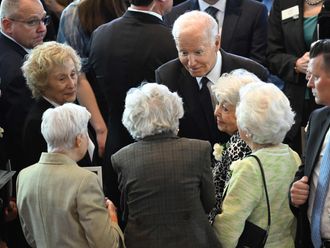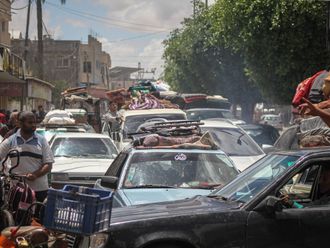Gaza: The spring winds of unity seem to have blown over for Palestinians who had been hoping to shut the door forever on political divisions in their midst. Although yellow Fatah flags are not as hard to find in the Gaza strip as they once were, little else has changed.
The planned announcement of a Palestinian unity government, which was supposed to happen in Cairo on Tuesday, has been delayed after Fatah and Hamas failed to agree on a mutually agreeable candidate.
Fatah nominated Salam Fayyad, an internationally respected former World Bank economist who currently heads the Palestinian government in the West Bank, to the post. Hamas, which seized the Gaza Strip from Fatah forces in 2007, has rejected Fayyad, accusing him of cooperating with Israel in a blockade of the enclave.
Hamas had announced previously that it would not accept Fayyad for the post since Fatah had rejected Hamas' nomination of Jamal Al Khodary.
"Both sides are solidly entrenched in their positions ahead of the government formation talks in Cairo," Yasser Al Wadia, president of the Palestinian Independent Personalities told Gulf News. Both sides are trying to stake their positions to maximise their gains ahead of talks, he explained.
The Egyptian-brokered unity pact which was signed on May 4 effectively ended four years of division between Hamas and Fatah. Instability in the region as a result of the Arab spring played a big role in forcing the parties to explore grounds for reconciliation.
"Its very important that the next prime minister is not only accepted by both parties but is also effective in marketing the government to the United States and the international community," Talal Okal, a political analyst told Gulf News. The rebuilding of Gaza, which was devastated following the 2008 Israeli war will be one of the most important tasks the new prime minister will be faced with.












